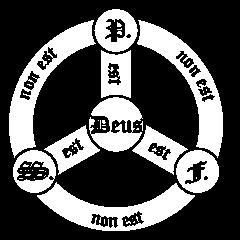Post by Joshua on Sept 23, 2007 19:07:52 GMT -5
It is ironic that most Christians believe that Adolph Hitler will have everlasting life. You might be thinking: “What?! No they don’t.” But think again—if Hitler is being tormented forever in fire, does he or does he not have everlasting life? It’s a miserable life, but it is everlasting life, right? On the contrary, Romans 6:23 says: “For the wages of sin is death, but the gift of God is everlasting life in Christ Jesus our Lord.” God never says that the wages of sin is eternal torment. No, He says that the penalty for sin is an end to one’s life.
Thinking logically, does it seem fair to you that God, who the Bible says is love, would forever inflict upon wicked people the excruciating agony of constantly burning? Justice would not be served by such an egregious atrocity, and how sad it is that this erroneous belief has contributed to many people turning away from the God whom they were told would do such a thing.
It is important to realize that no verse in the Bible says that the “soul” or “spirit” lives on by itself. No verse says that “hell” is a place of everlasting torment in fire. These falsehoods infiltrated Christianity via biblical mistranslation and the mixing of Greek culture and beliefs with the truths presented in the Bible.
In the Old Testament, the Hebrew word sheol means “the state, or place, of the dead,” and is usually translated as “grave” (see Psalms 6:5, 16:10, 49:15, 89:48 ). Because there is not literally any such place, it could also be translated as “gravedom.” The Hebrews recognized that man is an integrated being who is either alive or dead (to us, this is obvious). They understood that man does not have a soul, but rather that, as per Genesis 2:7, man is a living “soul” (the Hebrew word nephesh), that is, a living person. When he dies, he is then a dead soul (Lev. 19:28, 21:1; Num. 5:2, 6:6), that is, a dead person.
In contrast to the teaching of the Old Testament, most Greeks believed that man has “an immortal soul,” which they saw as the non-corporeal essence of his being that was trapped in the prison of his body until his body died and his “soul” could freely wing its way to Mt. Olympus, the land of Shades, or somewhere else. Because of this belief, the Greeks had no word that corresponded with the idea expressed by the Hebrew word sheol. The closest thing they could find was hades, and that is what those who produced the Septuagint (a translation of the Old Testament from Hebrew to Greek) chose as the counterpart to sheol. As they do with sheol in the Old Testament, some English versions of the Bible erroneously translate the Greek word hades as “hell” in the New Testament.
The impact of translating sheol as hades cannot be overstated. In sheol, everyone is dead, but in the Greek language and culture, everyone in Hades is alive. Thus, by the stroke of the pen of the Septuagint’s translators, all the dead (in sheol) were granted life after death in Hades. The Greek-speaking Hebrews, reading their Greek Bible, would naturally come to believe that “the dead are alive” (it was, after all, in their Bible). This explains why, at the time of Jesus, many Jews believed that the souls of the dead lived on after the person died, and why Jesus would speak a parable springboarding off that belief.
Which brings us to Luke 16:19-31.
"There was a rich man who was dressed in purple and fine linen and lived in luxury every day. At his gate was laid a beggar named Lazarus, covered with sores and longing to eat what fell from the rich man's table. Even the dogs came and licked his sores.
The time came when the beggar died and the angels carried him to Abraham's side. The rich man also died and was buried. In hell, where he was in torment, he looked up and saw Abraham far away, with Lazarus by his side. So he called to him, 'Father Abraham, have pity on me and send Lazarus to dip the tip of his finger in water and cool my tongue, because I am in agony in this fire.'
But Abraham replied, 'Son, remember that in your lifetime you received your good things, while Lazarus received bad things, but now he is comforted here and you are in agony. And besides all this, between us and you a great chasm has been fixed, so that those who want to go from here to you cannot, nor can anyone cross over from there to us.'
He answered, 'Then I beg you, father, send Lazarus to my father's house, for I have five brothers. Let him warn them, so that they will not also come to this place of torment.'
Abraham replied, 'They have Moses and the Prophets; let them listen to them.'
'No, father Abraham,' he said, 'but if someone from the dead goes to them, they will repent.'
He said to him, 'If they do not listen to Moses and the Prophets, they will not be convinced even if someone rises from the dead.' "
Since in death there is no consciousness, this story must be figurative, and it is. In context, Jesus had been addressing the Pharisees in parables from the beginning of chapter 15; the lost sheep, the lost coin, the prodigal son and the unjust steward. Luke 16:14 tells us that the Pharisees, who loved money, heard him and ridiculed him. In verse 15, Jesus told them that their values were warped and ungodly. The subsequent parable of the rich man and Lazarus perfectly illustrated for them the difference between what they esteemed and what God esteemed.
Not understanding this as a parable, one might think that Jesus meant to depict an immediate “heaven or hell” kind of afterlife. However, he told this parable to the Pharisees in light of their Talmudic traditions and their belief in immediate reward or punishment after death. It was they who coined the phrase “Abraham’s bosom” as one of several afterlife locations. Jesus did not intend to contradict the entire Old Testament and teach life after death. His primary intention was to show that the Pharisees were so evil that even if someone rose from the dead they wouldn’t listen to him. He did so by hypothetically stating that, even if one were to return from the place of the dead (which the Pharisees, having forsaken the Old Testament in favor of their traditions, believed in), those who refused to believe Moses and the prophets still would not believe (verse 31). How prophetic, as was evidenced by his own resurrection from the dead, which many of them did not believe.
We should note that the English word “hell” comes from an Old English word meaning “to conceal.” The first definition in Webster’s Third New International Dictionary is “a place or state of the dead or of the damned; usually under the ground” (hence, the idea of “concealed”). The second definition is “a place or state of misery, torment, or wickedness.” The idea that “hell” is a place of eternal torment came about because the Greek word hades carried with it all the connotation of Greek mythology, in which Hades was the god of the underworld, a place where the souls of dead people went to be tormented.
The New Testament certainly does speak of a place of fire where wicked people will be “punished with everlasting destruction and shut out from the presence of the Lord” (2 Thess. 1:9). This is gehenna, a Greek word that the Gospel writers used in reference to what is elsewhere called “the lake of fire.” It is significant that not only wicked people will be destroyed there, but also death and the grave (or gravedom) will be permanently destroyed. (Rev. 20:12-15)
Gehenna is the Greek word for the Hebrew “Valley of Hinnom,” which was the city dump outside of Jerusalem. When Jesus used this word to refer to the place of the future destruction of the wicked, all who heard him knew exactly what he meant. New Testament writers chose the word gehenna to describe the fate of the condemned only in the Gospels, speaking only to Jews, and only when addressing people familiar with the geography of Jerusalem.
Mark 9:44-46 "Where their worm dieth not, and the fire is not quenched". This Valley of Hinnom was where trash, animal carcasses, and even carcasses of criminals were incinerated by fire. And of course, maggots devoured anything not destroyed by the heat, hence "where their worm dieth not" or "where their maggots never die." The maggots live only as long as there is food and the fire burns only as long as there is fuel. But the point was that for anything thrown into that valley, complete destruction was inevitable. Those listening to Jesus speak of the evil burning in gehenna didn't think he meant they would burn forever. They knew that the garbage they took to the city dump did not continue to exist in the fire without being consumed. Rather, it burned up, and was gone. Jesus used the word gehenna to illustrate that the wicked were like the garbage, trash worthy only of destruction. The only reason the fire continued to burn was because the whole city kept throwing their garbage there. Likewise, when it's done its job, the lake of fire too will be no more.
If Revelation 20:10 is coming to your mind as an apparent contradiction to what you've read thus far, great—it should. It speaks of the Devil and a couple of his henchmen being thrown in the lake of fire and being “tormented day and night forever and ever.” However, the Bible was not written in English, and when we dig a bit deeper, we see that “forever and ever” in the Greek is more accurately “for ages unto ages.” Ezekiel 28:18 prophetically declares that the Devil will be “brought to ashes.” Apparently, as a fitting recompense for his monstrous evil, this will take a long time.
Thinking logically, does it seem fair to you that God, who the Bible says is love, would forever inflict upon wicked people the excruciating agony of constantly burning? Justice would not be served by such an egregious atrocity, and how sad it is that this erroneous belief has contributed to many people turning away from the God whom they were told would do such a thing.
It is important to realize that no verse in the Bible says that the “soul” or “spirit” lives on by itself. No verse says that “hell” is a place of everlasting torment in fire. These falsehoods infiltrated Christianity via biblical mistranslation and the mixing of Greek culture and beliefs with the truths presented in the Bible.
In the Old Testament, the Hebrew word sheol means “the state, or place, of the dead,” and is usually translated as “grave” (see Psalms 6:5, 16:10, 49:15, 89:48 ). Because there is not literally any such place, it could also be translated as “gravedom.” The Hebrews recognized that man is an integrated being who is either alive or dead (to us, this is obvious). They understood that man does not have a soul, but rather that, as per Genesis 2:7, man is a living “soul” (the Hebrew word nephesh), that is, a living person. When he dies, he is then a dead soul (Lev. 19:28, 21:1; Num. 5:2, 6:6), that is, a dead person.
In contrast to the teaching of the Old Testament, most Greeks believed that man has “an immortal soul,” which they saw as the non-corporeal essence of his being that was trapped in the prison of his body until his body died and his “soul” could freely wing its way to Mt. Olympus, the land of Shades, or somewhere else. Because of this belief, the Greeks had no word that corresponded with the idea expressed by the Hebrew word sheol. The closest thing they could find was hades, and that is what those who produced the Septuagint (a translation of the Old Testament from Hebrew to Greek) chose as the counterpart to sheol. As they do with sheol in the Old Testament, some English versions of the Bible erroneously translate the Greek word hades as “hell” in the New Testament.
The impact of translating sheol as hades cannot be overstated. In sheol, everyone is dead, but in the Greek language and culture, everyone in Hades is alive. Thus, by the stroke of the pen of the Septuagint’s translators, all the dead (in sheol) were granted life after death in Hades. The Greek-speaking Hebrews, reading their Greek Bible, would naturally come to believe that “the dead are alive” (it was, after all, in their Bible). This explains why, at the time of Jesus, many Jews believed that the souls of the dead lived on after the person died, and why Jesus would speak a parable springboarding off that belief.
Which brings us to Luke 16:19-31.
"There was a rich man who was dressed in purple and fine linen and lived in luxury every day. At his gate was laid a beggar named Lazarus, covered with sores and longing to eat what fell from the rich man's table. Even the dogs came and licked his sores.
The time came when the beggar died and the angels carried him to Abraham's side. The rich man also died and was buried. In hell, where he was in torment, he looked up and saw Abraham far away, with Lazarus by his side. So he called to him, 'Father Abraham, have pity on me and send Lazarus to dip the tip of his finger in water and cool my tongue, because I am in agony in this fire.'
But Abraham replied, 'Son, remember that in your lifetime you received your good things, while Lazarus received bad things, but now he is comforted here and you are in agony. And besides all this, between us and you a great chasm has been fixed, so that those who want to go from here to you cannot, nor can anyone cross over from there to us.'
He answered, 'Then I beg you, father, send Lazarus to my father's house, for I have five brothers. Let him warn them, so that they will not also come to this place of torment.'
Abraham replied, 'They have Moses and the Prophets; let them listen to them.'
'No, father Abraham,' he said, 'but if someone from the dead goes to them, they will repent.'
He said to him, 'If they do not listen to Moses and the Prophets, they will not be convinced even if someone rises from the dead.' "
Since in death there is no consciousness, this story must be figurative, and it is. In context, Jesus had been addressing the Pharisees in parables from the beginning of chapter 15; the lost sheep, the lost coin, the prodigal son and the unjust steward. Luke 16:14 tells us that the Pharisees, who loved money, heard him and ridiculed him. In verse 15, Jesus told them that their values were warped and ungodly. The subsequent parable of the rich man and Lazarus perfectly illustrated for them the difference between what they esteemed and what God esteemed.
Not understanding this as a parable, one might think that Jesus meant to depict an immediate “heaven or hell” kind of afterlife. However, he told this parable to the Pharisees in light of their Talmudic traditions and their belief in immediate reward or punishment after death. It was they who coined the phrase “Abraham’s bosom” as one of several afterlife locations. Jesus did not intend to contradict the entire Old Testament and teach life after death. His primary intention was to show that the Pharisees were so evil that even if someone rose from the dead they wouldn’t listen to him. He did so by hypothetically stating that, even if one were to return from the place of the dead (which the Pharisees, having forsaken the Old Testament in favor of their traditions, believed in), those who refused to believe Moses and the prophets still would not believe (verse 31). How prophetic, as was evidenced by his own resurrection from the dead, which many of them did not believe.
We should note that the English word “hell” comes from an Old English word meaning “to conceal.” The first definition in Webster’s Third New International Dictionary is “a place or state of the dead or of the damned; usually under the ground” (hence, the idea of “concealed”). The second definition is “a place or state of misery, torment, or wickedness.” The idea that “hell” is a place of eternal torment came about because the Greek word hades carried with it all the connotation of Greek mythology, in which Hades was the god of the underworld, a place where the souls of dead people went to be tormented.
The New Testament certainly does speak of a place of fire where wicked people will be “punished with everlasting destruction and shut out from the presence of the Lord” (2 Thess. 1:9). This is gehenna, a Greek word that the Gospel writers used in reference to what is elsewhere called “the lake of fire.” It is significant that not only wicked people will be destroyed there, but also death and the grave (or gravedom) will be permanently destroyed. (Rev. 20:12-15)
Gehenna is the Greek word for the Hebrew “Valley of Hinnom,” which was the city dump outside of Jerusalem. When Jesus used this word to refer to the place of the future destruction of the wicked, all who heard him knew exactly what he meant. New Testament writers chose the word gehenna to describe the fate of the condemned only in the Gospels, speaking only to Jews, and only when addressing people familiar with the geography of Jerusalem.
Mark 9:44-46 "Where their worm dieth not, and the fire is not quenched". This Valley of Hinnom was where trash, animal carcasses, and even carcasses of criminals were incinerated by fire. And of course, maggots devoured anything not destroyed by the heat, hence "where their worm dieth not" or "where their maggots never die." The maggots live only as long as there is food and the fire burns only as long as there is fuel. But the point was that for anything thrown into that valley, complete destruction was inevitable. Those listening to Jesus speak of the evil burning in gehenna didn't think he meant they would burn forever. They knew that the garbage they took to the city dump did not continue to exist in the fire without being consumed. Rather, it burned up, and was gone. Jesus used the word gehenna to illustrate that the wicked were like the garbage, trash worthy only of destruction. The only reason the fire continued to burn was because the whole city kept throwing their garbage there. Likewise, when it's done its job, the lake of fire too will be no more.
If Revelation 20:10 is coming to your mind as an apparent contradiction to what you've read thus far, great—it should. It speaks of the Devil and a couple of his henchmen being thrown in the lake of fire and being “tormented day and night forever and ever.” However, the Bible was not written in English, and when we dig a bit deeper, we see that “forever and ever” in the Greek is more accurately “for ages unto ages.” Ezekiel 28:18 prophetically declares that the Devil will be “brought to ashes.” Apparently, as a fitting recompense for his monstrous evil, this will take a long time.







 ) is used irrespectively to translate both the words Hades and Gehenna--because, to the translators, those words meant the same thing, even though, to the early church (indeed, to Our Lord Himself) they did not.
) is used irrespectively to translate both the words Hades and Gehenna--because, to the translators, those words meant the same thing, even though, to the early church (indeed, to Our Lord Himself) they did not.






